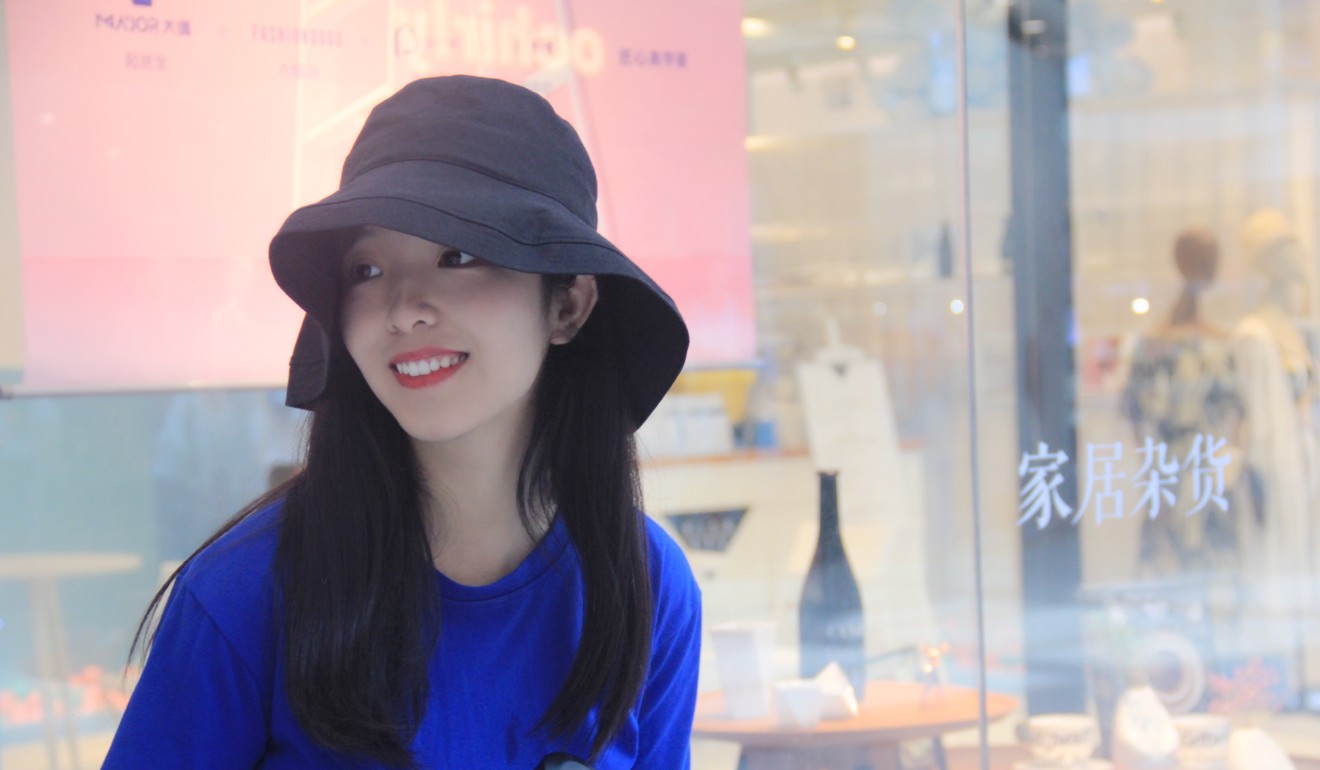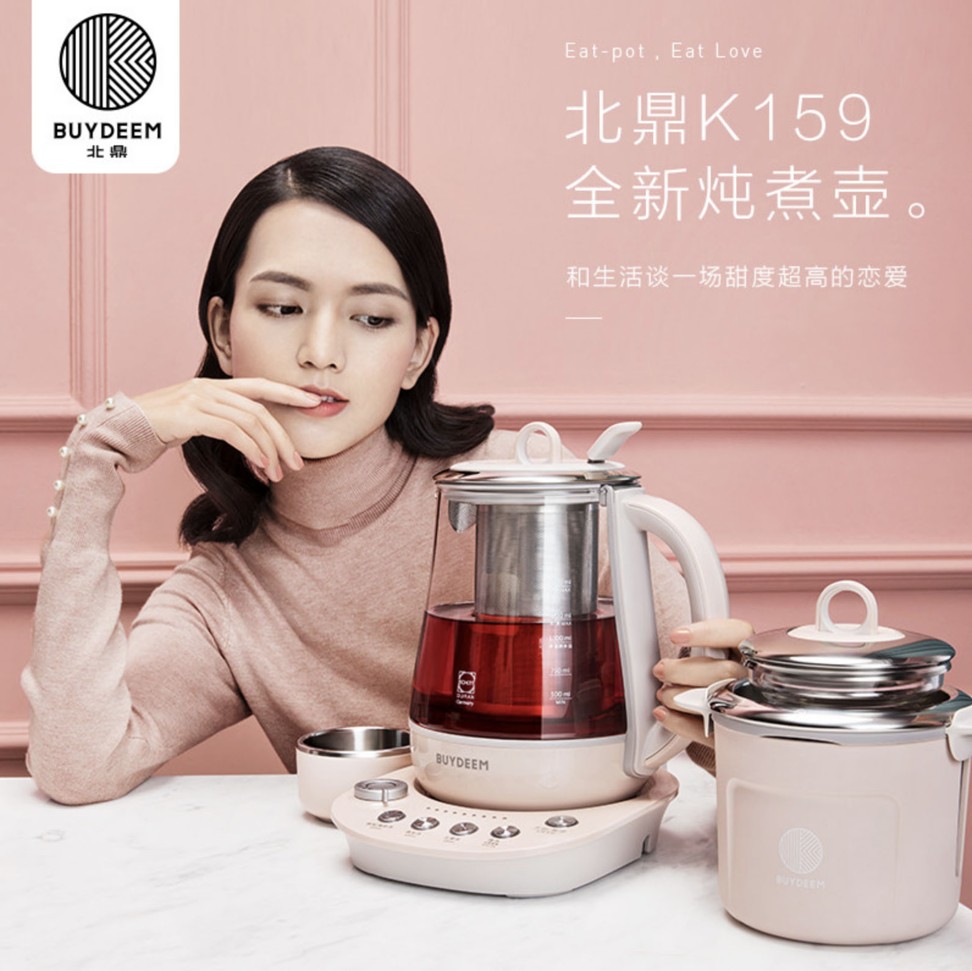
Gen-Z Chinese buying ‘wellness kettles’ to make soup, as healthy living trend takes off
Young Chinese today act like they are middle-aged, taking herbal foot baths, cooking nourishing soups, drinking goji tea and sharing traditional Chinese medicine tips. To fully embrace healthy living they must do more, experts say
Tian Rui, a 22-year-old office worker in Beijing, decided to give up her life in the fast lane three years ago when she landed in hospital for two weeks after fainting on a staircase. The diagnosis was anaemia – low red-blood-cell count – and tonsillitis.
She had been fooling around like all her friends, staying up until 5am and sometimes not even eating a single meal all day.

Now Tian cooks whole grain porridge daily and regularly makes nourishing soups; bathes her feet in hot water with mugwort and safflower before going to bed to improve blood circulation; and never stays up past 10.30pm.
“All my friends call me ‘the old one’, because I stopped going out with them for drinks and snacks at night,” she laughs. She also works out at a gym every day.
Tian, who used to have difficulty running even three kilometres at a time, says these actions have “transformed my body” and adds: “I feel healthy from inside out.”
The China fitness club where music matters as much as muscles
Tian is part of a generation of young Chinese who are paying unprecedented attention to their wellness, and measures such as foot baths that used to be considered the preserve of the middle-aged are becoming trendy.
This wellness trend has driven up sales of soup kettles and thermoses, as traditional soup recipes once popular with their parents’ generation are back in fashion among Chinese youth.

Yvonne Li, a second-year university student from Hunan province in central China, cooks white fungus soup with lotus seed for herself almost every day. It is considered nourishing for the stomach and skin in traditional Chinese medicine.
Why young Hongkongers are seeking solace in superstition
“I had the soup for two months, and not only did my skin look better, I also stopped having period cramps,” said Li, whose daily intake also includes a couple of red dates and a teaspoon of milled black sesame seeds, black beans and walnuts.
Retailers have jumped on the bandwagon and introduced soup kettles repackaged as “wellness kettles”, which are shiny electric glass pots that allow users to adjust the cooking time and mode. Appliance brand Buydeem even developed a special design in a light pink colour to target young female consumers.

Sales of such kettles reached 580 million yuan (US$87.5 million) in the first quarter of this year, growing 2.5 times from the same period last year, according to a report by market research firm AskCi Consulting.
Apart from soup, drinking warm goji tea, considered good for kidney and liver function in traditional Chinese medicine, is also rising in popularity.
Seasons: goji berries
A record 179 tonnes of goji berries were sold within the first hour of the Singles’ Day online shopping festival in November, a one-day shopping event bigger than Black Friday and Cyber Monday combined.
When some of the generation born in the 1990s – who are now in their 20s – sparked a social media frenzy in May by discussing their conscious efforts to fight ageing and stay energetic, many joked they like to put some of the red berries in the beer they drink.

Celebrities joined the chorus. Popular actress Fan Bingbing shared on social media platform Xiaohongshu a wellness tip, suggesting that drinking coix-seed tea (from a plant also known as Job’s tears or adlay) helps drain the body of “dampness”, a concept rooted in traditional Chinese medicine.
The growing competitive pressure at work and university, and greater exposure to knowledge about health, are among the factors driving the change among young people, nutrition experts say.
“With the rise in living standards, people are not satisfied with just getting by any more,” says Fan Zhihong, a professor of nutritional science at China Agricultural University.
Fan says her current undergraduate students are a lot more aware of their health than those she taught in the 1990s. “Today’s students shy away from sugary drinks and demand the school canteen provide wholegrain rice,” she says.
Why more whole foods, and no processed food, helps you lose kilos
Some of the trendy wellness tips passed around are not necessarily effective or scientific, Fan says. For example, goji berries contain lutein, an antioxidant which protect eye health but whose effects, positive or negative, on other organs are less well known.
Coix-seed water can also have varying effects depending on the person drinking it, she says.
Goji tea and foot baths are easier to achieve than changing your entire lifestyle, and that’s why they are so trendy
“It’s better to identify the root of your health problem and fix it, instead of following a trend mindlessly,” Fan says.
For example, many women who always have cold hands and feet seek to address the problem through foot baths, but problem can be caused by anaemia or low blood pressure, she says.
Wang Xingguo, principal dietitian at Dalian Central Hospital in northeast China, said that while many trends flow from traditional Chinese medicine, advice can be taken out of context and applied inappropriately because there are many contradictions in the practice.
The younger generation also puts more emphasis on experience, Wang says, and many are motivated by the good feelings they have when they make special soups for themselves.
“Being healthy requires the transformation of your whole lifestyle, from diet to exercising,” Wang says. “Goji tea and foot baths are easier to achieve than changing your entire lifestyle, and that’s why they are so trendy.”

